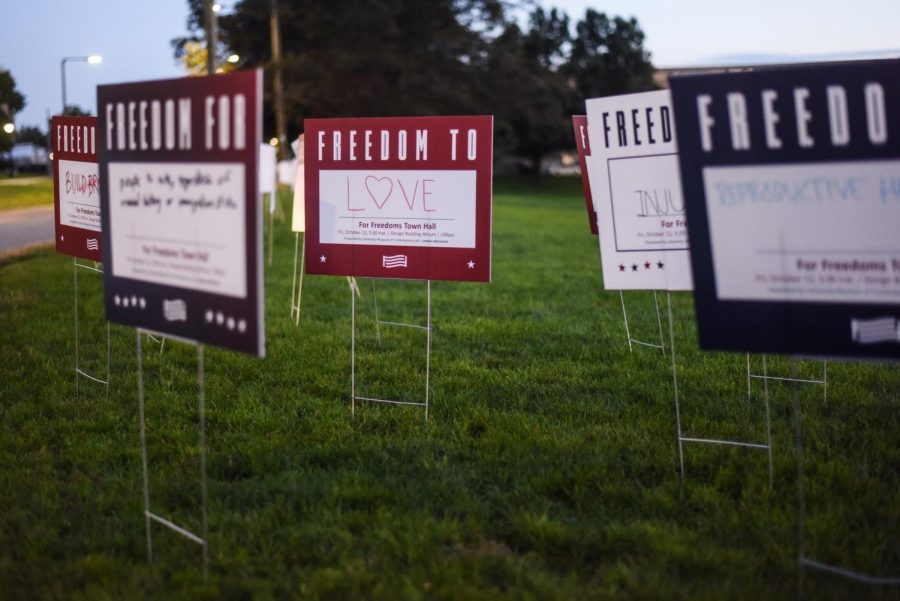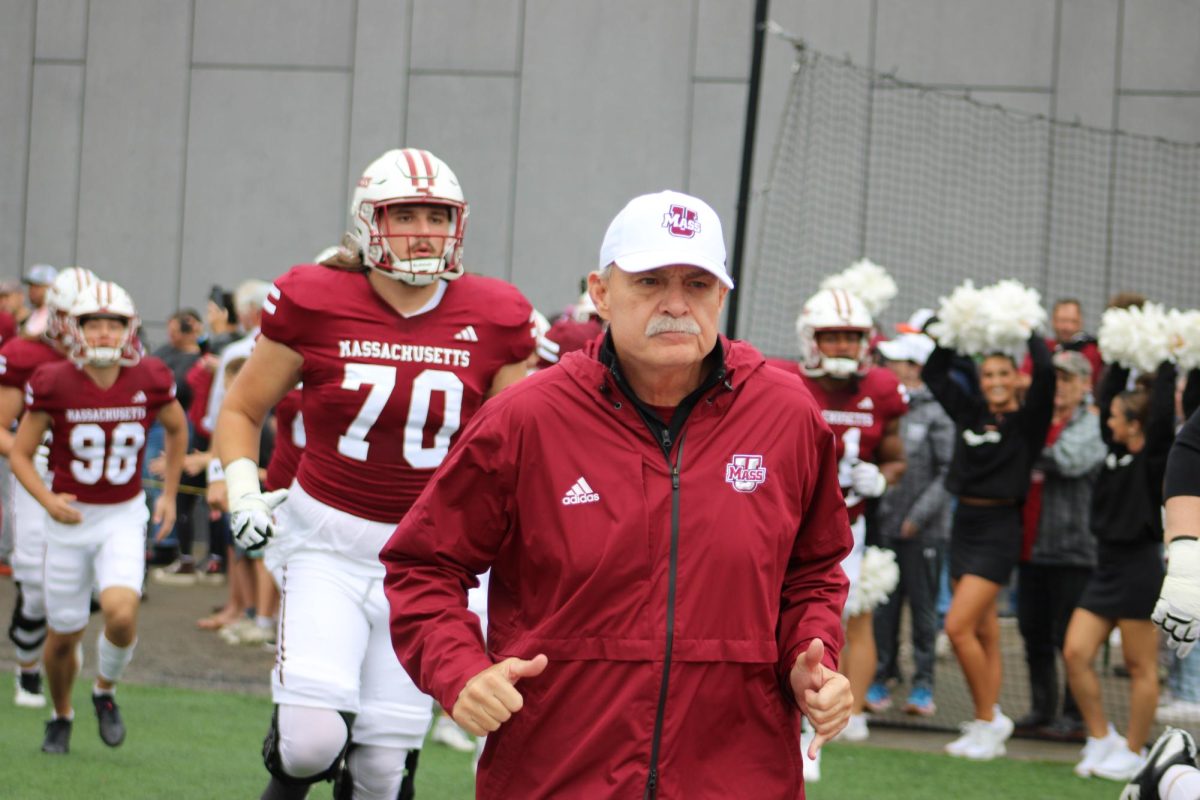If you couldn’t tell already, we are currently amidst one of the most polarizing periods in American history. The hate between people has become so extreme that we can’t stand each other. But where did this hatred come from? This division has always existed – it was not the result of the 2016 election that created this sudden hatred, but now it is flaring up again because of the midterms. Who is to blame here?
Everyone is at fault, Democrats and Republicans alike. One can’t simply point the blame to a specific party for the mass hate; this only adds fuel to the fire. If you think the division is from the other political party and not yourself, maybe you need to look in the mirror. As people, we tend to push blame on the opposition. This division is the exact reason why the nation as a whole appears to be falling apart.
Political division has plagued society. Political conversation used to be a taboo subject to bring up at Thanksgiving dinner, let alone in average everyday conversation. Now I can’t have any conversation without someone introducing their political party before their name and major. Newsflash: I don’t need to know what your opinions are regarding President Trump or who you’d like to see run in 2020. I’d much rather talk about how it rains every Tuesday and Thursday. I’m even proving my own point here: politics brings out our internal anger, and it drives people bananas. This notion of “my idea is better and more correct than yours because it is” is complete nonsense.
If you can’t take my word for it as student living though this polarizing era, take Brené Brown’s word, a researcher who has studied social work for over 20 years and who has something eye-opening to share when it comes to people and politics. In her sermon to the Washington National Cathedral this past January, Brown reflected on the concept of belonging, something that every person needs in life. Without belonging to a group, we tend to feel lonely and disconnected. Brown states that, “We have sorted ourselves by ideology into bunkers.” We have unintentionally sorted ourselves into “factions” of those who have the same belief system as ourselves, “and we have very little interest in people who don’t believe like us.” She continues with something shocking when it comes to our friends with similar beliefs: “I don’t know you, particularly like you, I’m not interested in knowing you, but I’m glad you hate those people too.” This binding commonality of hatred directed toward another group is exactly what is driving us apart today.
Now, consider the people with whom you are currently friends: We used to make friends with those who had the same interests as us, like sports or hobbies, but now we tend to make friends with people who have the same political views. Are these people you associate with really your friends? I would be willing to bet that most of your friends have the same political opinions, especially in the college setting. A new student who knows no one will tend to attach themself to people with shared opinions like glue.
I want you to also consider an extreme that could become a reality in the near future – Brown describes the concept of dehumanization, saying, “we are neurobiologically wired to take care of each other.” But, when we use hateful language to prove that we are right, and the other side is wrong, we go through this process of dehumanization. Brown follows up with, “We are not wired to kill and maim and torture and rape and hurt and belittle and shame people.” But once we dehumanize people, “we have permission to do anything we want to them.”
How do we solve this massive problem of hate? It’s simple: have a conversation with a person from the other side of the aisle. My recommendation is finding an acquaintance that has different views than you, then go to the Procrastination Station and have a conversation. While arguing, people often tend to just wait until the other person shuts up so they can talk again. You can get a lot out of a conversation, just by doing a little listening.
The key thing is that you have to be open to the possibility that there are opinions that differ from yours. When I’m in a conversation, I find that there is a mentality of “it’s my way or the highway,” especially when talking about politics. Humans are so deeply rooted in their opinions that they feel they have to stick to their guns and defend themselves no matter what. So, in this hypothetical future conversation, you have to be open to the other side and find possible common ground. If you aren’t willing to do so, then no progress will be made, and we will be driven further into dehumanization.
Nicole Biagioni is a Collegian contributor and can be reached at [email protected].




















NITZAKHON • Nov 28, 2018 at 7:19 am
Saul Alinksy, the founder of so many Progressive tactics, once said “There can be no conversation between the organizer and his opponents. The latter must be depicted as being evil.”
Remember that Obama taught Alinsky’s tactics; remember that Hillary corresponded with and admired Alinsky.
So now we know which side is pushing demonization and “othering”.
NITZAKHON • Nov 15, 2018 at 8:20 pm
@gordon saunders
A couple of years ago a fellow Jew asked me, when I voiced support of Trump over Hillary, “Are you really a… a… a Republican?”
“Heck no, I’m not that liberal”.
NPC • Nov 8, 2018 at 5:10 pm
This article is RACIST! Orange Man BAD!!!
gordon saunders • Nov 8, 2018 at 4:48 pm
What I know is that in my experience of being involved with a conversation with someone new is that I never bring up politics. It is the other person who brings it up, and it usually is a liberal., and once I admit that I am a conservative the conversation goes downhill, and eventually the conversation ends.